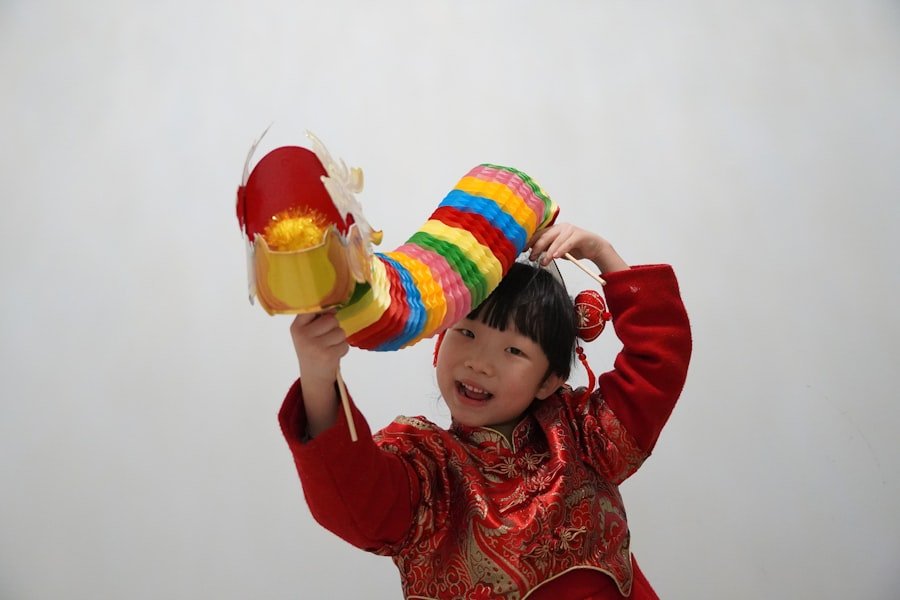Embarking on the journey of learning Chinese can be both an exciting and daunting experience. The Chinese language, with its rich history and intricate characters, offers a unique challenge that can be immensely rewarding. For beginners, grasping the basics is crucial, as it lays the foundation for more advanced language skills.
Understanding the tonal nature of Mandarin, familiarising oneself with pinyin, and learning essential vocabulary are all integral components of this initial phase. The beauty of the Chinese language lies not only in its complexity but also in its cultural significance, making the learning process a gateway to exploring a vibrant heritage. At the LC Chinese School in Oslo, the emphasis on learning Chinese basics is particularly pronounced.
The school provides a nurturing environment where students can engage with the language in a structured manner. Through interactive lessons and culturally immersive activities, learners are encouraged to develop their skills in a supportive setting. This approach not only aids in language acquisition but also fosters a sense of community among students, making the learning experience enjoyable and effective. Spaces are filling up fast! Register your child for Chinese Winter Camp at the LC Chinese School in Oslo today.
Table of Contents
ToggleSummary
- Learning Chinese basics is essential for building a strong foundation in the language.
- Understanding the importance of Chinese basics can help in grasping more advanced concepts later on.
- Creating a structured learning plan can provide a clear path for progression and achievement.
- Utilising interactive learning resources can make the learning process more engaging and effective.
- Incorporating daily practice and immersion can help in developing fluency and confidence in using the language.
Understanding the Importance of Chinese Basics
The importance of mastering the basics of Chinese cannot be overstated. A solid understanding of fundamental concepts serves as a springboard for further exploration of the language. Without a firm grasp of basic vocabulary and grammar, learners may find themselves struggling to communicate effectively or comprehend more complex structures.
Moreover, the tonal aspect of Mandarin adds another layer of complexity; thus, early exposure to pronunciation and tone recognition is essential for developing clear and accurate speech. Additionally, learning the basics of Chinese opens doors to understanding Chinese culture and society. Language is deeply intertwined with culture, and by learning basic phrases and expressions, students gain insights into social norms, traditions, and values.
This cultural context enriches the learning experience and fosters a deeper appreciation for the language itself. At LC Chinese School, students are not only taught how to speak but are also introduced to the cultural nuances that accompany the language, creating a holistic learning environment.
Creating a Structured Learning Plan

A well-structured learning plan is vital for anyone embarking on the journey of learning Chinese. Such a plan should outline specific goals, timelines, and resources to ensure that learners stay on track and motivated. For beginners, it is advisable to start with short-term goals, such as mastering basic greetings or numbers, before gradually progressing to more complex topics like sentence structure and conversational phrases.
This incremental approach helps to build confidence and reinforces the knowledge gained. Incorporating a variety of learning methods into the structured plan can also enhance the overall experience. For instance, combining traditional study techniques with modern technology can cater to different learning styles.
At LC Chinese School, instructors often encourage students to set personal milestones within their learning plans, allowing them to take ownership of their progress. This personalised approach not only makes learning more engaging but also instils a sense of responsibility in students as they work towards achieving their goals.
Utilising Interactive Learning Resources
In today’s digital age, there is an abundance of interactive resources available for learning Chinese. From mobile applications to online courses, these tools can significantly enhance the learning experience by making it more engaging and dynamic. Interactive resources often include games, quizzes, and multimedia content that cater to various learning styles, making it easier for students to absorb information and retain it over time.
At LC Chinese School, educators leverage these interactive tools to complement traditional teaching methods. For example, students might use language-learning apps during class or as homework assignments to reinforce what they have learned. This blend of technology and face-to-face instruction creates a rich learning environment where students can practice their skills in diverse ways.
Furthermore, interactive resources often provide instant feedback, allowing learners to identify areas for improvement and adjust their study habits accordingly.
Incorporating Daily Practice and Immersion
Consistency is key when it comes to language learning, and incorporating daily practice into one’s routine can yield significant results. Even short sessions dedicated to reviewing vocabulary or practising pronunciation can make a difference over time. For beginners at LC Chinese School, establishing a daily practice routine helps reinforce what they have learned in class and builds confidence in their abilities.
Immersion is another powerful tool for language acquisition. Surrounding oneself with the language—whether through listening to Chinese music, watching films, or reading simple texts—can enhance comprehension and fluency. At LC Chinese School, students are encouraged to engage with Chinese media as part of their homework assignments or extracurricular activities.
This exposure not only aids in language retention but also familiarises learners with different dialects and accents, enriching their overall understanding of the language.
Engaging with Native Chinese Speakers

One of the most effective ways to improve language skills is by engaging with native speakers. Conversations with fluent individuals provide invaluable opportunities for learners to practise their speaking and listening skills in real-life contexts. At LC Chinese School, initiatives such as language exchange programmes or cultural events allow students to interact with native speakers in a relaxed setting.
These interactions help demystify the language and make it feel more accessible. Moreover, engaging with native speakers can enhance cultural understanding. Language is a reflection of culture; thus, conversing with someone from China can provide insights into idiomatic expressions, social customs, and everyday life that textbooks may not cover.
This cultural exchange enriches the learning experience and fosters meaningful connections between students and the broader Chinese community.
Using Mnemonics and Memory Techniques
Memory techniques play a crucial role in language learning, especially when it comes to mastering vocabulary and characters in Chinese. Mnemonics—memory aids that help learners associate new information with familiar concepts—can be particularly effective in retaining complex characters or phrases. For instance, creating vivid mental images or stories related to specific words can make them easier to remember.
At LC Chinese School, instructors often introduce various mnemonic strategies tailored to different age groups and learning styles. By encouraging students to develop their own memory aids, teachers empower them to take an active role in their learning process. This creative approach not only makes studying more enjoyable but also enhances retention by linking new vocabulary to personal experiences or interests.
Tailoring Learning to Your Child’s Interests
Every child has unique interests that can be harnessed to make language learning more engaging. By tailoring lessons to align with a child’s passions—be it sports, music, or art—educators can create a more personalised learning experience that resonates with students on a deeper level. At LC Chinese School, teachers often incorporate themes related to students’ hobbies into their lessons, making vocabulary acquisition feel relevant and exciting.
For example, if a child loves basketball, lessons might include vocabulary related to sports terminology or discussions about famous athletes from China. This thematic approach not only keeps students motivated but also helps them see the practical applications of what they are learning. By connecting language skills to personal interests, children are more likely to remain engaged and enthusiastic about their studies.
Monitoring Progress and Adjusting the Approach
Regularly monitoring progress is essential for effective language learning. It allows both students and educators to identify strengths and areas that require further attention. At LC Chinese School, teachers conduct periodic assessments that help gauge each student’s understanding of the material covered in class.
These assessments can take various forms—quizzes, oral presentations, or even informal conversations—ensuring that progress is tracked comprehensively. Based on these evaluations, educators can adjust their teaching methods or provide additional resources tailored to individual needs. This flexibility ensures that each student receives the support necessary for their growth while fostering an environment where learners feel comfortable discussing challenges they may face.
By maintaining open lines of communication between teachers and students, LC Chinese School creates a responsive educational atmosphere that prioritises continuous improvement.
Encouraging a Positive Attitude and Persistence
A positive attitude towards learning is crucial for overcoming challenges associated with mastering a new language like Chinese. Encouragement from teachers and parents can significantly impact a child’s motivation and willingness to persevere through difficulties. At LC Chinese School, instructors actively promote a growth mindset by celebrating effort rather than just achievement.
This approach helps students understand that making mistakes is part of the learning process. Moreover, fostering resilience in learners encourages them to tackle obstacles head-on rather than shying away from challenges. By creating an environment where persistence is valued, educators empower students to embrace their journey of language acquisition with confidence and enthusiasm.
This positive reinforcement not only enhances language skills but also instils valuable life lessons about determination and self-belief.
Celebrating Milestones and Achievements
Recognising milestones along the language-learning journey is essential for maintaining motivation and enthusiasm among students. Celebrating achievements—whether big or small—reinforces the idea that progress is being made and encourages learners to continue striving towards their goals. At LC Chinese School, teachers often organise events or activities that highlight student accomplishments, such as end-of-term showcases where learners can demonstrate their skills through performances or presentations.
These celebrations serve as powerful motivators for students while fostering a sense of community within the school. When learners see their peers being recognised for their efforts, it creates an atmosphere of support and camaraderie that enhances the overall educational experience. By acknowledging milestones along the way, LC Chinese School not only celebrates individual achievements but also cultivates a collective spirit of growth and success among its students.
In conclusion, mastering the basics of Chinese is an essential step towards fluency in this fascinating language. Through structured learning plans, interactive resources, daily practice, engagement with native speakers, memory techniques tailored to individual interests, progress monitoring, encouragement of persistence, and celebration of achievements at institutions like LC Chinese School in Oslo, learners are well-equipped for success on their linguistic journey. The combination of these strategies creates an enriching environment where students can thrive while developing a deep appreciation for both the language and its cultural context.







